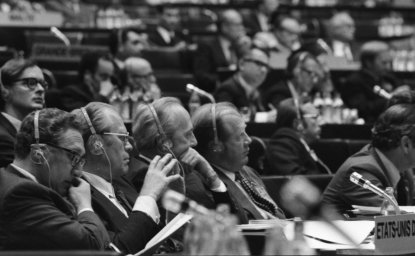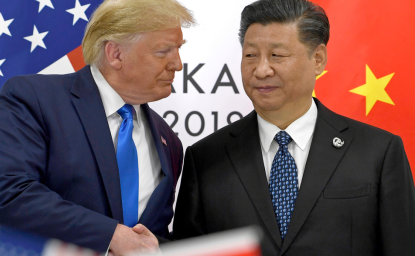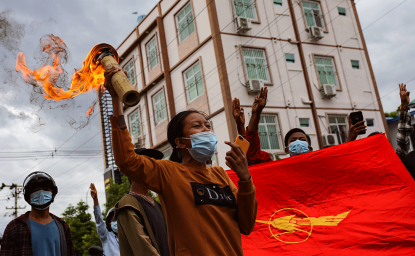The Latest
EU-US relations have become increasingly strained in the last month, with proposed tariffs on European imports and the exclusion of Europe from US-Russia peace talks on Ukraine. At the Munich Security Conference, Vice President JD Vance criticized Europe’s democratic policies and urged engagement with populist movements, prompting backlash from European leaders.
Robin Quinville, Director of the Global Europe Program, provides an overview of the current state of EU-US relations and how the Munich Security Conference jolted the status quo. She covers how the focus of Vice President Vance's speech caught Europeans off guard and the growing uncertainty about the future of the transatlantic relationship.
-
Transcript
Guest


Global Europe Program
The Global Europe Program is focused on Europe’s capabilities, and how it engages on critical global issues. We investigate European approaches to critical global issues. We examine Europe’s relations with Russia and Eurasia, China and the Indo-Pacific, the Middle East and Africa. Our initiatives include “Ukraine in Europe”—an examination of what it will take to make Ukraine’s European future a reality. But we also examine the role of NATO, the European Union and the OSCE, Europe’s energy security, transatlantic trade disputes, and challenges to democracy. The Global Europe Program’s staff, scholars-in-residence, and Global Fellows participate in seminars, policy study groups, and international conferences to provide analytical recommendations to policy makers and the media. Read more

Explore More
Browse Insights & Analysis
Yalta vs. Helsinki: Russia’s Vision for the Future

Victory in Delhi Gives BJP a Boost

Secretary Rubio's Latin America Trip: What Was Achieved?






